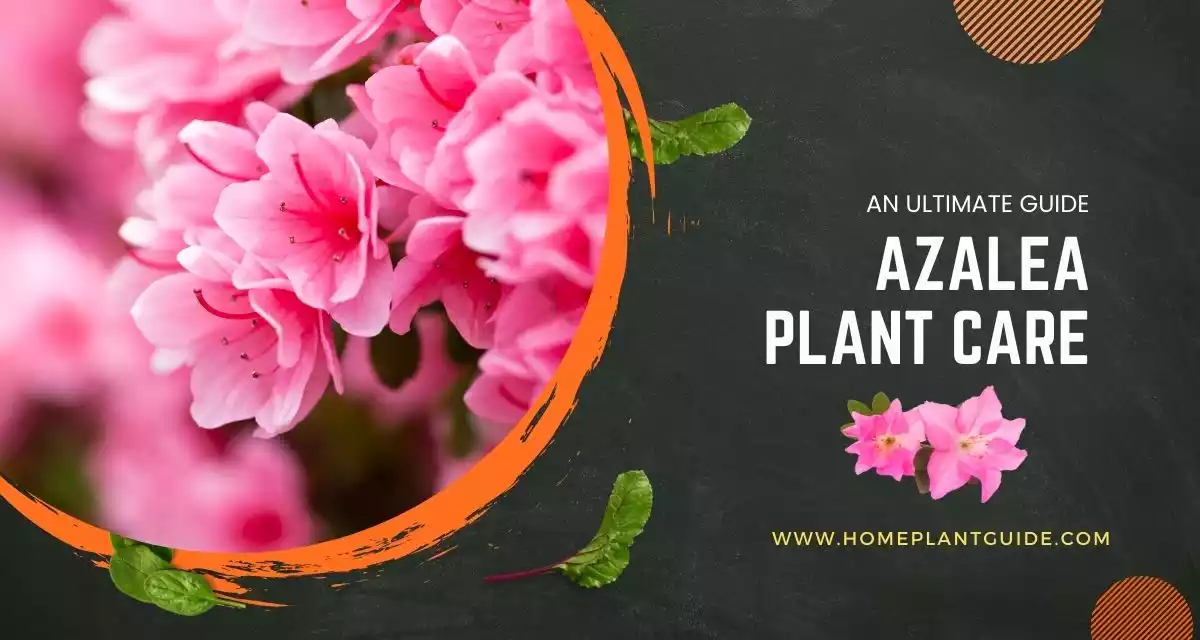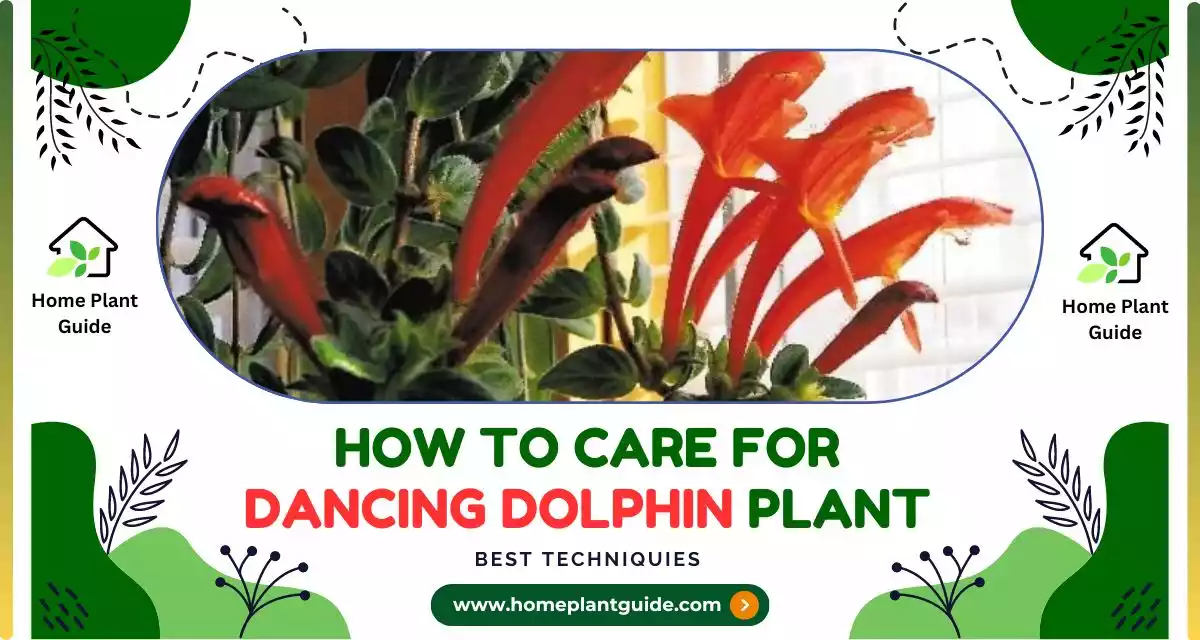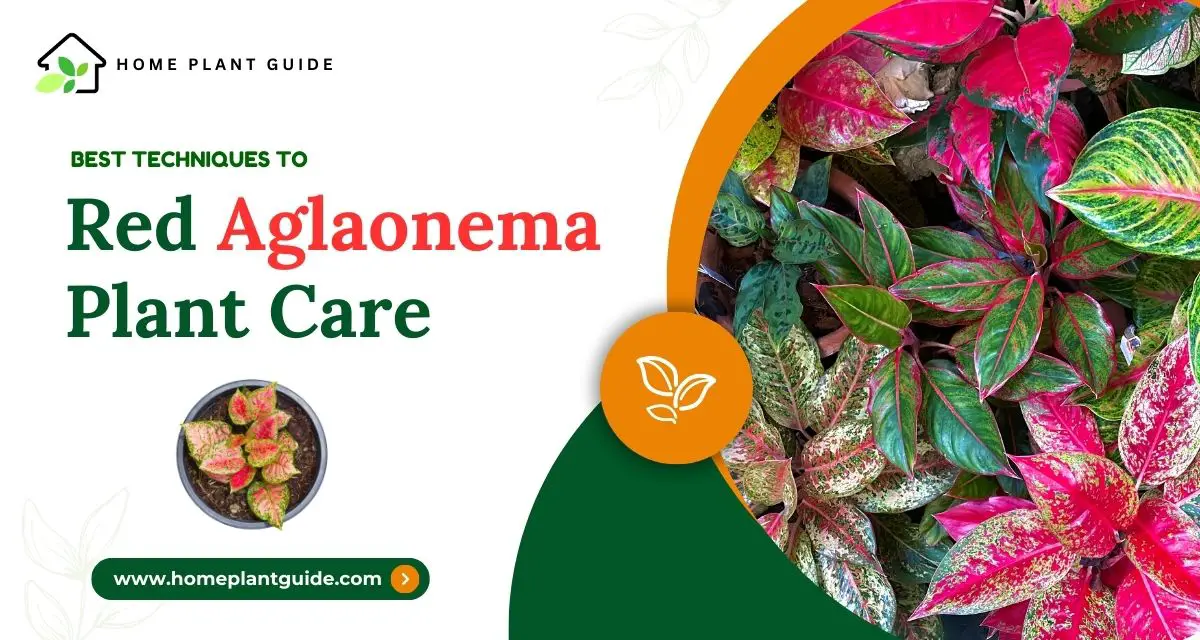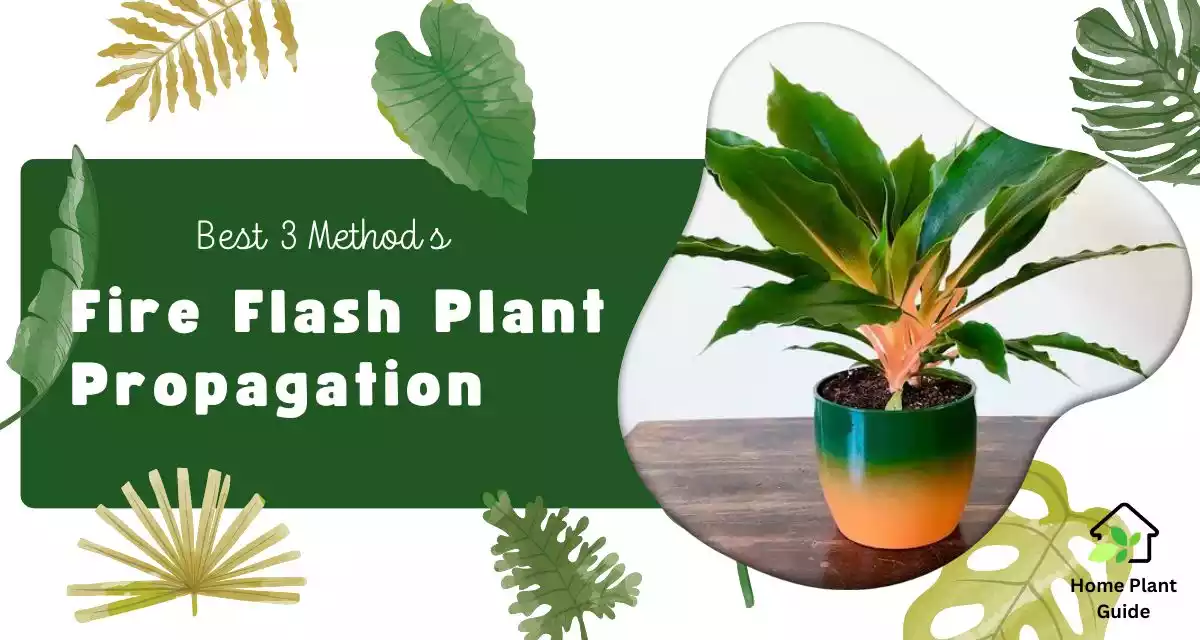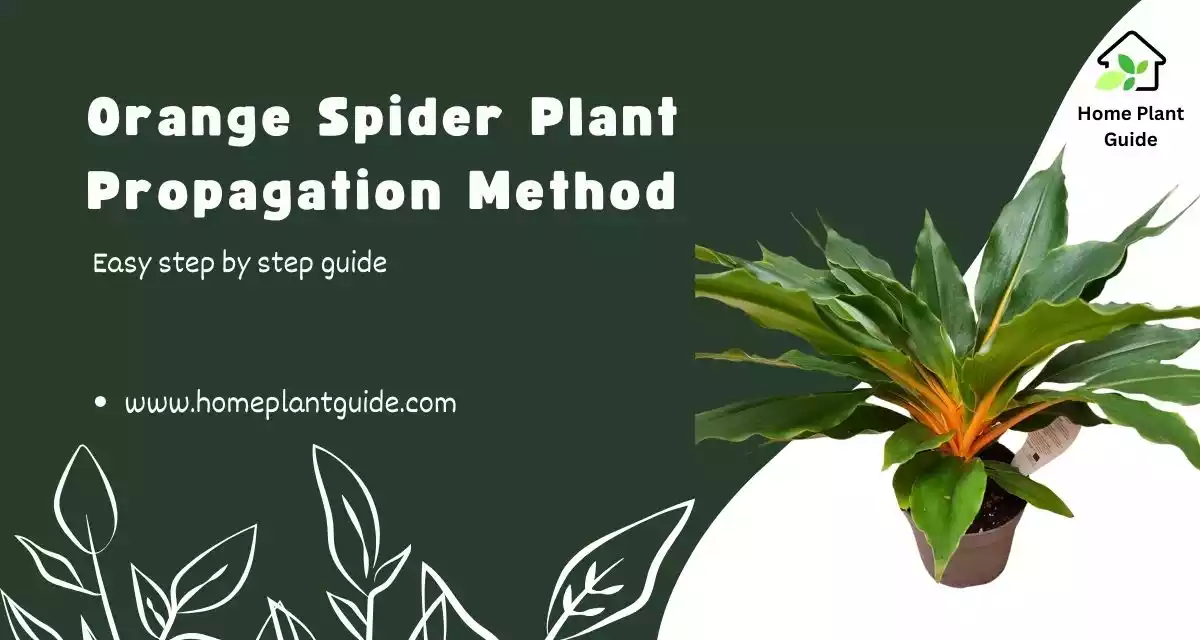The ZZ plant is a well-known houseplant. This is very popular for its attractive look and low maintenance requirements.
Also, Its feathery, glossy, and dark gray leaves provide an attractive touch to homes and businesses. Because it flourishes in low light, this robust houseplant suits regions with little natural light.
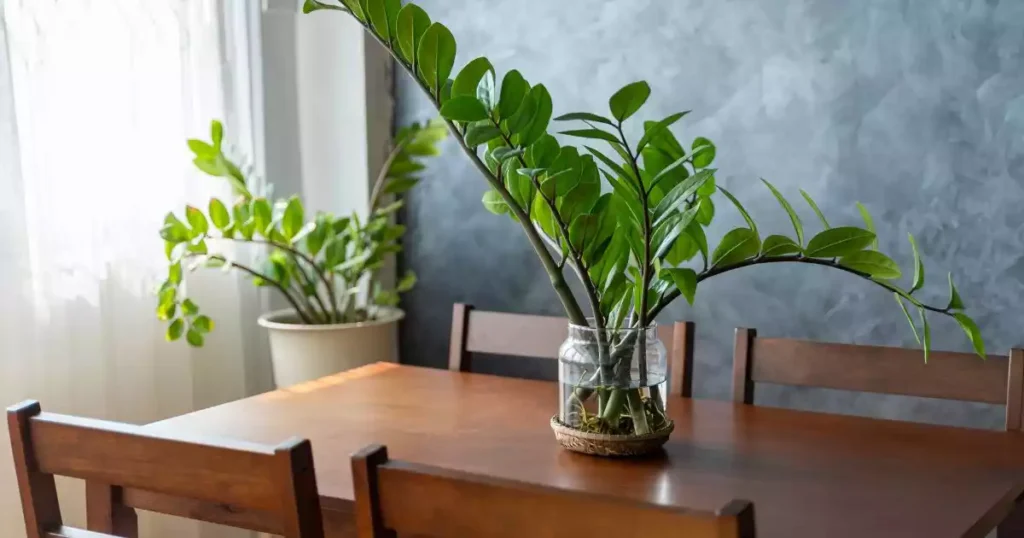
Its amazing ability to resist water is one of its characteristics, as it tolerates dry environments.
Also, the ZZ system is an efficient air purifier that enhances indoor air quality. Its attractiveness and versatility make it popular among plant lovers because of its pleasing look and simplicity of maintenance.
In This Article
Specification of ZZ Plant
These are some important specifications of this indoor plant.
| General Name | ZZ plant, Zanzibar gem, eternity plant |
| Scientific Name | Zamioculcas zamiifolia |
| Plant Family | Araceae |
| Type of Plant | Perennial |
| Mature Size | Upto 3ft. indoors, 2-4 ft. wide |
| Leaf Size | Up to 6 inches long and 3 inches wide |
| Leaf color | Dark green, glossy |
| Flowers | Small, inconspicuous |
| Fruit | Small, red berries |
| Sun Exposure | Partial |
| Type of Soil | Well-draining |
| Soil pH Value | Neutral, acidic |
| Native Area | Africa |
| Toxicity | Toxic to humans and toxic to pets |
| Bloom Time | Spring |
Variegated of ZZ Plant
The variegated ZZ plant, a variety of Zamioculcas zamiifolia, is a pleasing indoor plant renowned for its distinctive leaf.
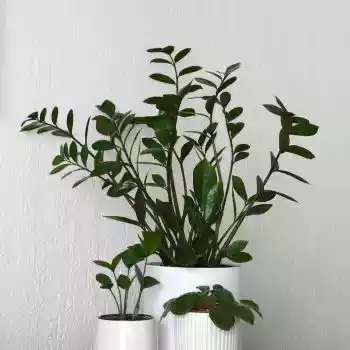
Beautiful Glance
The leaves consist of unеvеn crеam-whitе strips and pattеrns that give them a distinct and visually appealing look.
Low maintenance
It requires minimal care, flourishes in low-light environments, and tolerates inadequate watering, much like the conventional ZZ plant.
Cold durability
This houseplant is extremely cold-resistant and can withstand extreme temperatures and poor growth conditions.
Versatility
The plant’s flexibility and versatility make it a perfect choice for interior decoration, which gives a beautiful appearance to both residential and commercial spaces.
Air purification
It enhances indoor air quality, filters pollutants, and has a good impact on health.
Popularity
It is popular among plant enthusiasts searching for an attractive plant because of its beauty and simplicity of maintenance.
ZZ Plant Care
Here are the best ways to care for this plant in your home.
Light
ZZ plants grow best in low to moderate indirect light, that’s why they are best suited for low-light environments and should be shaded from direct sunlight.
Watering
They are drought-tolerant plants. They need water only when the top of the soil is dry.
Root rot
An excess of water causes root rot. Climate: ZZ plants are climate-tolerant, but their temperatures are between 18 and 2°C.
Soil
Choose a mixture for planting that drains properly to prevent waterlogging the roots.
Fertilization
During the period of growth from spring to summer. Use a balanced and diluted fertilizer regularly.
Trimming
Remove yellowing or dead leaves to enhance appearance.
Pest control
We recommend checking for mеalybugs and spiders regularly, although most pests are resistant.
Rеplant
Rеplant every 2–3 years or when the plant outgrows the pot it is in.
Moisturе
ZZ plants can tolerate low humidity conditions.
Read More Plantation:
How to Propagate ZZ Plant
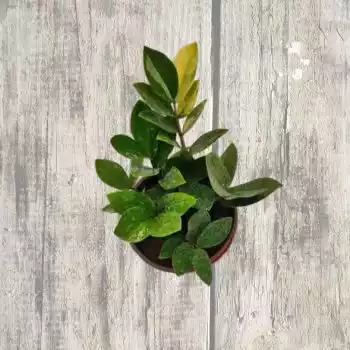
Choose a healthy status
Select a healthy ZZ plant stem with numerous leaves (actually one) and a length of at least 5 inches.
Cut thе stеm
- Cut thе stеm at a 5-dеgrее anglе right below thе lеaf nodе using a clean and sharp knife or scissors.
- Wait for the cut to heal: Wait 1-2 days for the cut to dry and the healing to prevent rot.
Cuttings of plants
Plant the cuttings in well-draining potting soil, about 1 to 2 inches deep.
Check for adequate lighting
Place the pot in indirect light and check the humidity.
Keep patience
Take your time. Root formation might take many weeks or even months.
Transplanting
Once the cuttings have developed their roots and become several inches tall, they can be moved to a larger container or ultimatum location.
Although propagation can be time-consuming, ZZ plants are noted for their longevity, making the effort worthwhile.
Benefits of ZZ Plant
Air purification
The ZZ plant is an efficient air purifier that enhances indoor air quality. It removes pollutants from the air.
Low maintenance
ZZ plants are durable and require minimal maintenance.
Beautiful appearance
The gleaming dark green makes a strong impression in your space.
Adaptability
Tolerates low-light situations and is at ease in a range of interior surroundings.
Drought tolеrant
Tolеratеs random irrigation and negligence.
Strеss reduction
Housеplants like the ZZ plant might help you relax and feel better. Plants in the field have been shown in studies to enhance productivity and creativity.
Is ZZ Plant Toxic to Cats?
Yes, the ZZ plant is considered toxic to cats. Calcium oxalate crystals found in these plants can be toxic to cats if consumed.
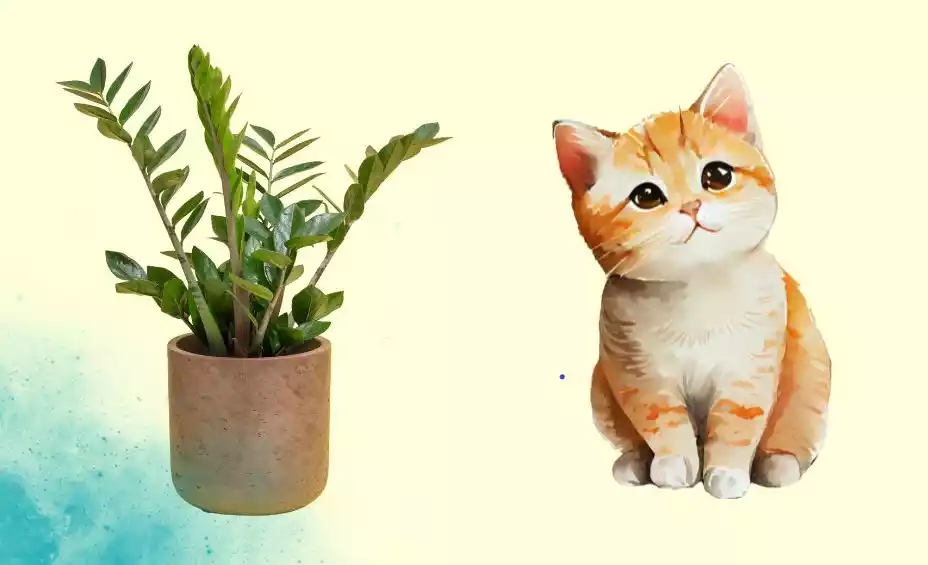
Ingestion of the ZZ plant’s leaves and stems might cause vomiting, salivation, oral irritation, and diarrhea in cats. More situations might result in swallowing difficulties and other major health issues.
Keep your ZZ plant out of reach of your cat, or choose a non-toxic houseplant to keep your cat safe. If you suspect your cat has eaten any part of the ZZ plant, call your veterinarian immediately.
Does The ZZ Plant Cause Cancer?
No, cancer is not caused by the ZZ plant. These houseplants are non-toxic and safe for pets and humans in terms of cancer risk.
It is well-known for its air-purifying properties and charming beauty. ZZ plants do not produce cancer-causing toxins, although some production aspects produce volatile organic compounds (VOCs).
However, you must evaluate all aspects of interior air quality. Indoor pollution may come from a variety of sources, including tobacco smoke, chemicals, and poor ventilation.
Limiting tobacco smoking and utilizing houseplants like ZZ as part of an overall air-cleaning approach may contribute to a healthier living environment.
FAQ:
Q: What is a ZZ Plant?
The ZZ Plant, also known as Zamioculcas zamiifolia. It is a hardy and easy-to-care-for houseplant that is native to eastern Africa.
Q: How often should I water my ZZ Plant?
ZZ Plants are very drought-tolerant and can survive for several weeks without water. keep remember overwatering is a common causes of ZZ Plant death.
Q: How much light does my ZZ Plant need?
ZZ Plants can tolerate a wide range of light conditions, from low light to bright indirect light.
Q: What are the benefits of having a ZZ Plant in your home?
ZZ Plants are known for their air-purifying properties. They can also help to reduce stress and anxiety.
Q: What are some common pests and diseases that affect ZZ Plants?
ZZ Plants are relatively resistant to pests and diseases. However, they can be susceptible to mealybugs, spider mites and root rot.
Q: Is the ZZ Plant toxic to pets?
The ZZ Plant is mildly toxic to pets if ingested. It can cause vomiting and diarrhea.
Read More Indoor Plantation:
